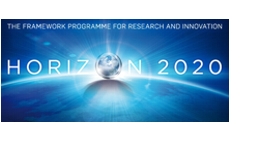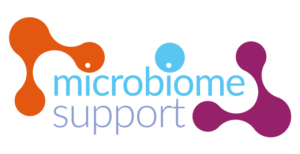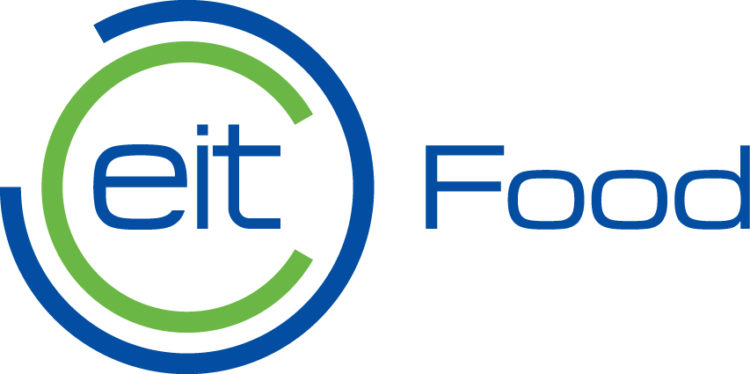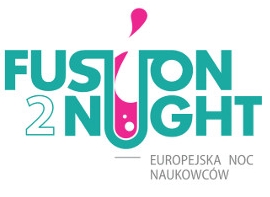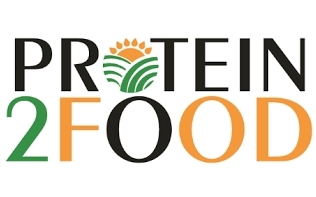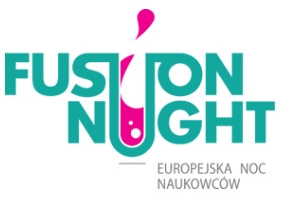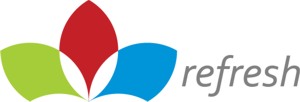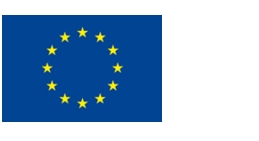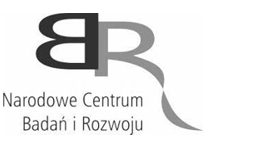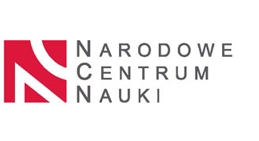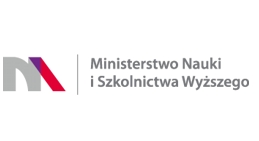Small non-coding RNAs (sncRNAs): Novel biomarkers for assessing sperm fertilizing ability in Eurasian perch
Call: NCN Preludium 23 (nr rej. 2024/53/N/NZ9/03312)
Coordinator: Abhipsa PANDA, MSc
Budget: 70 000 PLN
Period: 2025-02-13 – 2026-02-12
Molecular mechanisms underlying the liver injury induced by ulipristal acetate treatment
Call: NCN Preludium 23 (nr rej. 2024/53/N/NZ7/01608)
Coordinator: Aleksandra ŁUPIŃSKA, MSc
Budget: 210 000 PLN
Period: 2025-02-11 – 2028-02-11
To eat or not to eat? Zootechnical and transcriptomic exploration of foraging performance in Eurasian perch larvae
Call: NCN Preludium 23 (nr rej. 2024/53/N/NZ9/01570)
Coordinator: Rossella DEBERNARDIS, MSc
Budget: 140 000 PLN
Period: 2025-02-13 – 2027-02-12
The molecular dialog between dendritic cells and endometrial microenvironment during equine endometrosis
Call: NCN Opus 27 (nr rej. 2024/53/B/NZ6/01575)
Coordinator: Agnieszka SADOWSKA, PhD
Budget: 3 569 232 PLN
Period: 2025-01-09 – 2029-01-08
Impact of vitamin D on the epigenetic programming of CD34+ hematopoietic progenitor cells derived from human cord blood
Call: NCN Opus 27 (nr rej. 2024/53/B/NZ2/00492)
Coordinator: Carsten CARLBERG, prof.
Budget: 3 351 340 PLN
Period: 2025-01-09 – 2029-01-08
Metabolomic analysis of blood and urine as a tool to assess the impact of inulintype fructan supplementation on the health of individuals with plaque psoriasis
Call: NCN Miniatura 8 (nr rej. 2024/08/X/NZ9/01793)
Coordinator: Natalia PŁATOSZ, PhD
Budget: 49 995 PLN
Period: 2024-12-10 – 2025-12-09
Development of a cell culture model of polarized and differentiated epithelial cells of the bovine endometrium based on cyclical fluctuations of steroid hormones
Call: NCN Miniatura 8 (nr rej. 2024/08/X/NZ9/01504)
Coordinator: Aleksandra MÓWIŃSKA, PhD
Budget: 49 999 PLN
Period: 2024-12-10 – 2025-06-09
How phosphorus-containing food additives affect the gut and metabolic health of the body: having the guts to tackle phosphates
Call: NCN Opus 25 (nr rej. 2023/49/B/NZ9/01345)
Coordinator: Adam JURGOŃSKI, PhD
Budget: 1 983 717 PLN
Period: 2024-10-01 – 2028-09-30
The effect of ketogenic diet on DNA methylation in rat oocytes and metabolic profile of its offspring
Call: NCN Opus 26 (nr rej. 2023/51/D/NZ9/02711)
Coordinator: Piotr KACZYŃSKI, PhD
Budget: 1 844 780 PLN
Period: 2024-11-28 – 2027-11-27
Blood circulating small non-coding RNAs (c-sncRNAs) as non-lethal biomarkers of reproductive status and gamete quality in pikeperch (Akronym: sAnDeRNA)
Call: NCN Opus 26 (nr rej. 2023/51/B/NZ9/01877)
Coordinator: Joanna NYNCA, PhD
Budget: 3 023 579 PLN
Period: 2024-10-01 – 2028-09-30
The effect of Western diet modified with vegetable oils on the healing process of skin wounds in mice
Call: NCN Opus 25 (reg. no. 2023/49/B/NZ9/01925)
Coordinator: Joanna WIŚNIEWSKA (BUKOWSKA), PhD (IAR&FR PAS) | Marcin TABAKA, PhD (Institute of Physical Chemistry PAS, IPC PAS)
Budget: 3 495 898 PLN (IAR&FR PAS – 2 525 388 PLN | IPC PAS – 970 510 PLN)
Period: 2024-01-04 – 2028-01-03
Investigating the mechanisms of epigenetic memory at the example of the responsiveness of human immune cells to vitamin D
Call: NCN Opus 25 (reg. no. 2023/49/B/NZ9/00402)
Coordinator: Carsten CARLBERG, prof.
Budget: 3 371 280 PLN
Period: 2024-01-09 – 2028-01-08
The effect of macrophages on the miRNA expression profile in equine endometrial fibroblasts
Call: NCN Preludium 22 (reg. no. 2023/49/N/NZ6/01654)
Coordinator: Ewelina ŻEBROWSKA, MSc
Budget: 209 960 PLN
Period: 2024-01-03 – 2027-01-02
Building blocks and energy carriers in the course of mare endometrial fibrosis – identification of metabolic changes and the effect of inflammatory mediators
Call: NCN Preludium 22 (reg. no. 2023/49/N/NZ5/02309)
Coordinator: Anna WÓJTOWICZ, MSc
Budget: 140 000 PLN
Period: 2024-01-03 – 2026-01-02
The Impact of biosequestration on the profile of bioactive compounds and antioxidant activity of extracts from microalgae Chlorella sp.
Call: NCN Miniatura 7 (reg. no. 2023/07/X/NZ9/01688)
Coordinator: Michał JANIAK, PhD
Budget: 49 995 PLN
Period: 2023-11-27 – 2024-11-26
Comparison of the potential of red deer and beef for the formation of bioactive peptides
Call: NCN Miniatura 7 (reg. no. 2023/07/X/NZ9/01550)
Coordinator: Anna KONONIUK, PhD
Budget: 49 999 PLN
Period: 2023-11-27 – 2024-11-26
Antioxidant defense systems of the skin in terms of age and expression of the epidermal transcription factor Foxn1
Call: NCN Miniatura 7 (reg. no. 2023/07/X/NZ4/00537)
Coordinator: Sylwia MACHCIŃSKA-ZIELIŃSKA, PhD
Budget: 49 995 PLN
Period: 2023-09-05 – 2024-09-04
Analysis of the interaction between the transcription factor Foxn1 and selected Wnt pathway elements in mouse skin
Call: NCN Miniatura 7 (reg. no. 2023/07/X/NZ3/00625)
Coordinator: Marta KOPCEWICZ, PhD
Budget: 49 907 PLN
Period: 2023-10-05 – 2024-10-04
Effect of embryonic signals on methylome of the porcine endometrium as a novel mechanism contributing to pregnancy establishment
Call: NCN Opus 24 (reg. no. 2022/47/B/NZ9/02776)
Coordinator: Agnieszka WACŁAWIK, PhD
Budget: 1999 440 PLN
Period: 2023-06-20 – 2027-06-19
Painting or spots? – Unravelling the mechanism of formation and the functional sgnificance of the novel, glioblastoma-specific localization pattern of HCMV (Human Cytomegalovirus) IE1 (immediate early 1) protein
Call: NCN Opus 24 (reg. no. 2022/47/B/NZ6/02446)
Coordinator: Magdalena M. WEIDNER-GLUNDE, PhD
Budget: 4 585 860 PLN
Period: 2023-06-20 – 2027-06-19
EGF, IGF-1 and cumulus cells co-culture system for in vitro maturation of mammalian oocytes as female fertility preservation strategy
Call: NCN Polonez Bis 2 (reg. no. 2022/45/P/NZ3/03982)
Coordinator: Taisiia YURCHUK, PhD
Budget: 1 111 317 PLN
Period: 2023-06-01 – 2025-05-31
Effect of intestinal microbiota modulation induced by the chicory inulin-type β-fructans on metabolic parameters and biomarkers of the gut-skin axis in chronic skin inflammation
Call: NCN Opus 23 (reg. no. 2022/45/B/NZ9/03004)
Coordinator: Urszula KRUPA-KOZAK, PhD (IAR&FR PAS) | Agnieszka OWCZARCZYK-SACZONEK, prof. (Uniwersity of Warmia and Mazury in Olsztyn, UWM) | Ewa LANGE, PhD (Warsaw University of Life Sciences, SGGW)
Budget: 2 014 890 PLN (IAR&FR PAS – 1 455 460 PLN | UWM – 239 180 PLN | SGGW – 320 250 PLN)
Period: 2023-02-02 – 2027-02-01
Soluble scavenger receptor cysteine-rich domain-containing protein – SSc5D, a new player of innate immunity in turkey (Meleagris gallopavo) semen involved in yellow semen syndrome
Call: NCN Opus 23 (reg. no. 2022/45/B/NZ9/01360)
Coordinator: Mariola SŁOWIŃSKA, PhD
Budget: 2 285 548 PLN
Period: 2023-01-20 – 2027-01-19
The potential of the combined osmoconcentration-lactic fermentation process in shaping the profile of bioactive components of new onion varieties studied in an in-vivo model
Call: NCN Opus 23 (reg. no. 2022/45/B/NZ9/00550)
Coordinator: Katarzyna GRZELAK-BŁASZCZYK, PhD (Lodz University of Technology, PŁ) | Jerzy JUŚKIEWICZ, prof. (IAR&FR PAS)
Budget: 1 111 584 PLN (PŁ – 618 216 PLN | IAR&FR PAS – 493 368 PLN)
Period: 2023-02-15 – 2027-02-14
The effect of age and diet on dWAT lipid metabolism in mouse model
Call: NCN Sonatina 6 (reg. no. 2022/44/C/NZ5/00129)
Coordinator: Katarzyna WALENDZIK, PhD
Budget: 1 394 035 PLN
Period: 2022-10-03 – 2025-10-02
Immunomodulating properties of pre-fermented whey beverage enriched with chokeberry juice and colostru
Call: NCN Preludium Bis 3 (reg. no. 2021/43/O/NZ9/00957)
Coordinator: Barbara WRÓBLEWSKA, prof.
Budget: 688 080 PLN
Period: 2022-10-01 – 2026-09-30
Extracellular Vesicles from Follicular Fluid and sperm capacitation
Call: NCN Preludium Bis 3 (reg. no. 2021/43/O/NZ3/03095)
Coordinator: Aneta ANDRONOWSKA, PhD
Budget: 688 080 PLN
Period: 2022-10-01 – 2026-09-30
Metallopeptides as alternative markers for the construction of electrochemical biosensors
Call: NCN Miniatura 6 (reg. no. 2022/06/X/ST4/01541)
Coordinator: Kamila MALECKA-BATURO, PhD
Budget: 49 500 PLN
Period: 2022-11-23 – 2023-11-22
Characteristics of the 3D in vitro model of the porcine uterine endometrium using scaffolds for long-term cell culture
Call: NCN Miniatura 6 (reg. no. 2022/06/X/NZ9/00705)
Coordinator: Ewelina GORYSZEWSKA-SZCZUREK, PhD
Budget: 49 940 PLN
Period: 2022-10-01 – 2024-07-31
Transcriptomic analysis of muscular layer of the uterus in mares with endometrosis
Call: NCN Miniatura 6 (reg. no. 2022/06/X/NZ5/01258)
Coordinator: Ewa DRZEWIECKA, PhD
Budget: 49 984 PLN
Period: 2022-11-23 – 2023-11-22
National Science Center program for scientists from Ukraine to continue research in Poland
Call: NCN Wsparcie dla Ukrainy (reg. no. 2022/01/3/NZ6/00117)
Coordinator: Taisiia YURCHUK, PhD
Budget: 130 000 PLN
Period: 2022-06-01 – 2023-05-31
Biotope influence on genetic diversity, fitness traits, microbiome and embryonic diapause in the European roe deer
Call: NCN OpusLAP 22 (reg. no. 2021/43/I/NZ9/01077)
Coordinator: Anna KORZEKWA, prof. (IAR&FR PAS) | Elena BUZAN, prof. (University of Primorska, UP)
Budget: IAR&FR PAS – 1 861 012 PLN | UP – 290 156 EURO (Slovenia, ARRS)
Period: 2022-07-27 – 2026-07-26
Exploration of the development, role and functioning of circadian rhythm in early life stages of Perca fluviatilis
Call: NCN Opus 22 (reg. no. 2021/43/B/NZ9/03056)
Coordinator: Katarzyna PALIŃSKA-ŻARSKA, PhD (National Inland Fisheries Research Institute, IRS-PIB) | Daniel ŻARSKI, PhD (IAR&FR PAS)
Budget: 1 563 118 PLN (IRS-PIB – 862 753 PLN | IAR&FR PAS – 700 365 PLN)
Period: 2022-10-03 – 2026-10-02
Towards unraveling the role of carp cold acclimation protein 31 (Cap31) – a new important player in fish antimicrobial defense?
Call: NCN Opus 22 (reg. no. 2021/43/B/NZ9/02869)
Coordinator: Andrzej CIERESZKO, prof.
Budget: 1 802 715 PLN
Period: 2022-06-27 – 2026-06-26
The role of the methylation of the progesterone receptor isoforms A and B promoters in the regulation of bovine corpus luteum function
Call: NCN Opus 22 (reg. no. 2021/43/B/NZ9/02840)
Coordinator: Robert J. RĘKAWIECKI, PhD
Budget: 1 387 384 PLN
Period: 2022-10-03 – 2026-10-02
The role of milk matrix lipids in programming the immunoreactivity of proteins derived from lactic acid bacteria
Call: NCN Sonata 17 (reg. no. 2021/43/D/NZ9/02814)
Coordinator: Anna OGRODOWCZYK, PhD
Budget: 1 799 500 PLN
Period: 2022-07-07 – 2025-07-06
Potential use of peroxiredoxins to improve the quality of cryopreserved bull semen
Call: NCN Sonata 17 (reg. no. 2021/43/D/NZ9/01916)
Coordinator: Agnieszka MOSTEK-MAJEWSKA, PhD
Budget: 1 959 780 PLN
Period: 2022-08-01 – 2025-07-31
Importance of miRNA (miR-21, miR-34a, miR-132 and miR-503) and vimentin in process of progesterone synthesis in granulosa cells of the porcine preovulatory follicle
Call: NCN Preludium 20 (reg. no. 2021/41/N/NZ9/03540)
Coordinator: Paweł LIKSZO, MSc
Budget: 197 640 PLN
Period: 2022-01-17 – 2025-01-16
Establishment of the mechanisms of ovarian tissue activation in pre-pubertal cattle – in vitro and in vivo studies
Call: NCN Opus 21 (reg. no. 2021/41/B/NZ9/03661)
Coordinator: Ilona P. KOWALCZYK-ZIĘBA, PhD
Budget: 1 211 338 PLN
Period: 2022-01-13 – 2025-01-12
KETO-MINOX: The effect of isocaloric, energy-restrictive, KETOgenic diet on Metabolism, Inflammation, Nutrition deficiencies and OXidative stress in women with overweight and obesity
Call: NCN Opus 21 (reg. no. 2021/41/B/NZ9/01278)
Coordinator: Natalia DRABIŃSKA, PhD (IAR&FR PAS) | Jerzy ROMASZKO, PhD (Uniwersity of Warmia and Mazury in Olsztyn, UWM)
Budget: 2 023 584 PLN (IAR&FR PAS – 1 987 584 PLN | UWM – 36 000 PLN)
Period: 2022-01-13 – 2025-01-12
Is metabolic effect of copper nanoparticles reliant on dietary fibre with different physiological function?
Call: NCN Opus 21 (reg. no. 2021/41/B/NZ9/01104)
Coordinator: Jerzy JUŚKIEWICZ, prof. (IAR&FR PAS) | Katarzyna OGNIK, prof. (University of Life Sciences in Lublin, UP-Lublin)
Budget: 1 850 496 PLN (IAR&FR PAS – 1 288 808 PLN | UP-Lublin – 561 688 PLN)
Period: 2022-01-13 – 2026-01-12
The search for the novel mechanisms linking intracellular calcium flux regulation with insulin sensitivity response to regular physical exercise
Call: NCN Opus 21 (reg. no. 2021/41/B/NZ7/03948)
Coordinator: Marek STRĄCZKOWSKI, prof.
Budget: 1 946 500 PLN
Period: 2022-01-11 – 2026-01-10
The secretory function and proliferation activity of endometrium: involvement of phoenixin 14
Call: NCN Preludium Bis 2 (reg. no. 2020/39/O/NZ4/03388)
Coordinator: Magdalena K. KOWALIK, PhD
Budget: 541 600 PLN
Period: 2021-10-01 – 2023-01-04
Development of a platform based on DNA aptamers for simultaneous electrochemical determination of selected Parkinson’s disease biomarkers
Call: NCN Miniatura 5 (reg. no. 2021/05/X/ST4/00336)
Coordinator: Edyta MIKUŁA, PhD
Budget: 49 060 PLN
Period: 2021-10-01 – 2022-09-30
Establisment of novel Expanded Potential Stem Cells (EPSCs) from bovine pre-implantation embryos – in vivo and in vitro characterization studies
Call: NCN OpusLAP 20 (reg. no. 2020/39/I/NZ3/03109)
Coordinator: Izabela WOCŁAWEK-POTOCKA, prof. (IAR&FR PAS) | Monika A. NOWAK-IMIALEK, PhD (Technical University of Munich, TUM)
Budget: IAR&FR PAS – 1 054 720 PLN | TUM – 332 986 EURO (Germany, DFG)
Period: 2021-12-23 – 2024-12-22
Importance of fatty acids and their transporters for placenta development in the pig
Call: NCN Opus 20 (reg. no. 2020/39/B/NZ9/01751)
Coordinator: Agnieszka BLITEK, prof.
Budget: 1 016 800 PLN
Period: 2021-09-30 – 2025-09-29
Alleviation of adverse effects associated with high-fat diet through dietary patterns changes and/or supplementation of various forms of chromium
Call: NCN Opus 20 (reg. no. 2020/39/B/NZ9/00674)
Coordinator: Jerzy JUŚKIEWICZ, prof. (IAR&FR PAS) | Katarzyna OGNIK, prof. (University of Life Sciences in Lublin, UP-Lublin)
Budget: 1 641 686 PLN (IAR&FR PAS – 1 210 728 PLN | UP-Lublin – 431 140 PLN)
Period: 2021-06-24 – 2024-06-23
Do sirtuins regulate epigenetic programming and gene transcription in the endometrium and support conceptus implantation during early pregnancy in pigs?
Call: NCN Sonata 16 (reg. no. 2020/39/D/NZ9/01742)
Coordinator: Magdalena SZYMAŃSKA, PhD
Budget: 1 410 860 PLN
Period: 2021-09-30 – 2024-09-29
Transcriptomic and zootechnical exploration of parental contribution to progeny quality in Eurasian perch, Perca fluviatilis
Call: NCN Sonata Bis 10 (reg. no. 2020/38/E/NZ9/00394)
Coordinator: Daniel ŻARSKI, PhD (IAR&FR PAS) | Katarzyna PALIŃSKA-ŻARSKA, PhD (National Inland Fisheries Research Unstitute, IRS-BIP)
Budget: 2 803 784 PLN (IAR&FR PAS – 2 008 600 PLN | IRS-BIP – 795 184 PLN)
Period: 2021-06-01 – 2026-05-31
Voltage across a hydrogel: A new perspective on cell’s membrane potential and its implications for early embryogenesis
Call: NCN Sonata Bis 10 (reg. no. 2020/38/E/NZ3/00039)
Coordinator: Magdalena KOWACZ, PhD
Budget: 3 368 700 PLN
Period: 2021-07-01 – 2026-06-30
Ultra-sensitive tools for detection of antibiotics as a new strategy to control treatment and withdrawal period after cattle antibiotic therapy
Call: NCN Opus 19 (reg. no. 2020/37/B/NZ9/03423)
Coordinator: Katarzyna KURZĄTKOWSKA-ADASZYŃSKA, PhD
Budget: 1 603 200 PLN
Period: 2021-02-01 – 2025-01-31
The understanding of molecular mechanisms of interactions between macrophages and endometrial fibroblasts in processes related to pathogenesis of endometrosis in mares
Call: NCN Opus 19 (reg. no. 2020/37/B/NZ9/03355)
Coordinator: Anna Z. SZÓSTEK-MIODUCHOWSKA, PhD
Budget: 2 021 640 PLN
Period: 2021-09-01 – 2025-08-31
The role of embryonic signal in epigenetic regulation of genes involved in corpus luteum function during early pregnancy in the pig
Call: NCN Opus 19 (reg. no. 2020/37/B/NZ9/03205)
Coordinator: Piotr KACZYŃSKI, PhD
Budget: 1 167 000 PLN
Period: 2021-03-01 – 2025-02-28
Immune mechanisms facilitating placentation in mares
Call: NCN Sonatina 4 (reg. no. 2020/36/C/NZ9/00192)
Coordinator: Joanna JAWORSKA, PhD
Budget: 1 251 307 PLN
Period: 2020-11-02 – 2024-11-01
Proteomic insights into the mechanism of the acrosome reaction in sturgeon (Acipenser baerii) spermatozoa
Call: NCN Opus 18 (reg. no. 2019/35/B/NZ9/03501)
Coordinator: Mariola A. DIETRICH, PhD
Budget: 1 165 008 PLN
Period: 2020-09-30 – 2025-09-29
The interaction of T helper cells subsets with endometrial fibroblasts in processes associated to development of mare endometrosis
Call: NCN Sonata 15 (reg. no. 2019/35/D/NZ9/02989)
Coordinator: Anna Z. SZÓSTEK-MIODUCHOWSKA, PhD
Budget: 1 503 600 PLN
Period: 2020-09-01 – 2024-08-31
Role of prokineticin 1 in processes related with function of porcine corpus luteum during early pregnancy and the estrous cycle
Call: NCN Preludium 18 (reg. no. 2019/35/N/NZ9/03986)
Coordinator: Monika BARYŁA, MSc
Budget: 210 000 PLN
Period: 2020-11-03 – 2023-11-02
Characterisation of leptin signalling in the obese uteri: putative link to transcriptional regulation during pre-decidualisation
Call: NCN Preludium 18 (reg. no. 2019/35/N/NZ4/03496)
Coordinator: Edyta WALEWSKA, MSc
Budget: 140 000 PLN
Period: 2020-06-25 – 2023-06-24
Evaluation of reproductive hormones and ovarian structure profiles during different reproductive status in wild female Eurasian beaver
Call: NCN Miniatura 4 (reg. no. 2020/04/X/NZ9/01711)
Coordinator: Jumpei TOMIYASU, PhD
Budget: 49 997 PLN
Period: 2020-12-12 – 2022-03-11
Maternal obesity and epigenetic and metabolic regulations during gametogenesis and early embryo development in mice: the specific role of leptin signalling
Call: NCN Sonata Bis 9 (reg. no. 2019/34/E/NZ4/00349)
Coordinator: António M. GALVÃO, PhD
Budget: 3 879 750 PLN
Period: 2020-12-01 – 2024-11-30
Role of epidermally expressed transcription factor Foxn1 in regulation and modulation of dermal white adipose tissue (dWAT)
Call: NCN Preludium 16 (reg. no. 2018/31/N/NZ5/00400)
Coordinator: Katarzyna WALENDZIK, MSc
Budget: 139 993 PLN
Period: 2019-07-09 – 2022-07-08
Mitochondrial and metablolic adjustments during bovine in vitro embryo development – examination of the molecular quality markers of the bovine oocytes
Call: NCN Opus 16 (reg. no. 2018/31/B/NZ9/03412)
Coordinator: Izabela WOCŁAWEK-POTOCKA, prof.
Budget: 1 142 536 PLN
Period: 2019-07-05 – 2023-10-04
Milky Way to reproductive success: role of leptin in the programming of reproductive functions over generations
Call: NCN Opus 16 (reg. no. 2018/31/B/NZ4/03527)
Coordinator: Monika M. KACZMAREK, prof.
Budget: 2 195 550 PLN
Period: 2019-09-03 – 2024-09-02
Polyphenols from raspberries and their metabolites as factors regulating mechanisms of nonalcoholic fatty liver disease
Call: NCN Sonata 14 (reg. no. 2018/31/D/NZ9/02196)
Coordinator: Bartosz FOTSCHKI, PhD
Budget: 1 295 260 PLN
Period: 2019-06-18 – 2023-06-17
Regulation of bull sperm capacitation by redox modifications of proteins
Call: NCN Opus 15 (reg. no. 2018/29/B/NZ9/00486)
Coordinator: Andrzej CIERESZKO, prof.
Budget: 1 706 700 PLN
Period: 2019-01-09 – 2022-07-08
Biological study and mathematical modeling to describe and predict new processes controlling the development, function and atresia of ovarian follicles in cows
Call: NCN Opus 15 (reg. no. 2018/29/B/NZ9/00391)
Coordinator: Dariusz J. SKARŻYŃSKI, prof.
Budget: 1 966 000 PLN
Period: 2019-01-24 – 2024-12-23
Role of microRNAs and prostaglandis in reglation of extracellular vesicles biogenesis in porcine trophoblast cells: in vitro studies
Call: NCN Preludium 15 (reg. no. 2018/29/N/NZ9/02331)
Coordinator: Maria GUZEWSKA, MSc
Budget: 139 993 PLN
Period: 2019-03-15 – 2022-03-14
The mechanisms regulating sperm maturation and formation of cryoinjuries to cryopreserved semen of sex-reversed females rainbow trout
Call: NCN Preludium 15 (reg. no. 2018/29/N/NZ9/00761)
Coordinator: Sylwia JUDYCKA, MSc
Budget: 209 998 PLN
Period: 2019-01-31 – 2022-01-30
Methods of mitochondrial calcium uniporter protein deposition on the gold electrodes surface
Call: NCN Miniatura 2 (reg. no. 2018/02/X/ST4/02565)
Coordinator: Katarzyna KURZĄTKOWSKA, PhD
Budget: 44 550 PLN
Period: 2019-03-15 – 2020-03-14
Effects of embrionic signal on the conceptus and on global gene expression and DNA methylation in the endometrium in pigs in vivo
Call: NCN Opus 14 (reg. no. 2017/27/B/NZ9/03014)
Coordinator: Agnieszka WACŁAWIK, PhD
Budget: 999 628 PLN
Period: 2018-08-31 – 2022-08-30
Effect of sexual maturity and hormonal stimulation on ovarian follicles function in gilts
Call: NCN Opus 14 (reg. no. 2017/27/B/NZ9/02289)
Coordinator: Adam J. ZIĘCIK, prof.
Budget: 1 099 930 PLN
Period: 2018-07-24 – 2022-03-23
Hypoxia inducible factor (Hif-1α) and transcription factor Foxn1 guide regenerative vs reparative skin wound healing processes
Call: NCN Opus 14 (reg. no. 2017/27/B/NZ5/02610)
Coordinator: Barbara GAWROŃSKA-KOZAK, PhD
Budget: 1 994 940 PLN
Period: 2018-08-10 – 2023-02-09
Role of membrane progesterone recptors in the regulation of endometrium activity
Call: NCN Opus 14 (reg. no. 2017/27/B/NZ4/02973)
Coordinator: Magdalena K. KOWALIK, PhD
Budget: 896 360 PLN
Period: 2018-08-03 – 2024-02-02
Exploring mechanisms of congenital HCMV infection: replication, spread and latency establishment
Call: NCN Sonata Bis 7 (reg. no. 2017/26/E/NZ6/01124)
Coordinator: Magdalena M. WEIDNER-GLUNDE, PhD
Budget: 3 179 500 PLN
Period: 2018-05-10 – 2025-05-09
The role of hypoxia-stimulated adipose-derived stromal/stem cells (ASCs) in activation of regenerative (scarless) wound healing pathways in skin
Call: NCN Sonata 13 (reg. no. 2017/26/D/NZ5/00556)
Coordinator: Joanna BUKOWSKA, PhD
Budget: 1 224 304 PLN
Period: 2018-04-27 – 2022-10-26
Antibody-redox active molecule conjugates as platform for simultaneous electrochemical determination of low density lipoprotein (LDL) and oxidized low density lipoprotein (oxLDL)
Call: NCN Opus 13 (reg. no. 2017/25/B/ST4/00139)
Coordinator: Iwona GRABOWSKA, PhD
Budget: 577 580 PLN
Period: 2018-04-30 – 2023-04-29
Production of selected hormones in the reproductive tract of nonpragnant and pregnant females and characteristic of oocytes and biological parameters of semen (Cervus elaphus L.)
Call: NCN Opus 13 (reg. no. 2017/25/B/NZ9/02544)
Coordinator: Anna J. KORZEKWA, PhD
Budget: 1 142 600 PLN
Period: 2018-02-26 – 2022-10-25
The mechanism of pesticides action on activity of bovine cervix and the estimation of their potential adverse effect on reproductive success
Call: NCN Opus 13 (reg. no. 2017/25/B/NZ9/01620)
Coordinator: Michał H. WRÓBEL, PhD
Budget: 406 980 PLN
Period: 2018-01-19 – 2021-01-18
Analysis of miRNA expression profile in the course of mare endometrial fibrosis (endometrosis)
Call: NCN Miniatura 1 (reg. no. 2017/01/Z/NZ5/01528)
Coordinator: Anna Z. SZÓSTEK-MIODUCHOWSKA, PhD
Budget: 49 500 PLN
Period: 2017-12-22 – 2018-12-21
Are there differences in molecular mechanisms and signaling pathways of PGF2A-induced bovine luteal cell death depending upon its peripheral or local administration: comparison between endocrine and paracrine effects
Call: NCN Miniatura 1 (reg. no. 2017/01/X/NZ9/00363)
Coordinator: Katarzyna PIOTROWSKA-TOMALA, PhD
Budget: 44 550 PLN
Period: 2017-09-20 – 2018-09-19
Nutritional and health promoting properties of diets supplemented with seeds or oils from seeds of some plants
Call: NCN Opus 12 (reg. no. 2016/23/B/NZ9/01012)
Coordinator: Adam JURGOŃSKI, PhD
Budget: 522 548 PLN
Period: 2017-08-25 – 2021-02-24
Maternal obesity and epigenetic programming: from gametogenesis to early embryo development
Call: NCN Opus 12 (reg. no. 2016/23/B/NZ4/03737)
Coordinator: António M. GALVÃO, PhD
Budget: 795 756 PLN
Period: 2017-08-24 – 2021-08-23
The analysis of physial and chemical properties of powders obtained from the juices and pomace of selected fruits using different drying methods and determination of their influence on the chosen indicators of the immune system in in vivo model studies
Call: NCN Sonata 12 (reg. no. 2016/23/D/NZ9/02671)
Coordinator: Anna MICHALSKA, PhD
Budget: 479 160 PLN
Period: 2017-10-16 – 2022-04-15
Prostacyclin (PGI2) signaling in in vitro produced bovine embryos derived from oocytes collected in vivo by ovum pick up (oPU) method from prepubertal and pubertal heifers, and cows
Call: NCN Preludium 12 (reg. no. 2016/23/N/NZ9/01554)
Coordinator: Arkadiusz NOWICKI, MSc
Budget: 149 784 PLN
Period: 2017-07-11 – 2022-01-10
Integrated analysis of transcriptome and proteome as a tool for assessment of quality and ageing process in eggs of pikeperch
Call: NCN Harmonia 8 (reg. no. 2016/22/M/NZ9/00590)
Coordinator: Daniel ŻARSKI, PhD (Uniwersity of Warmia and Mazury in Olsztyn, UWM) | Andrzej CIERESZKO, prof. (IAR&FR PAS)
Budget: 1 101 685 PLN (UWM – 698 685 PLN | IAR&FR PAS – 403 000 PLN)
Period: 2017-06-01 – 2021-12-31
Redox active monolayers for exploring of anion recognitions precesses in aqueous phase
Call: NCN Opus 11 (reg. no. 2016/21/B/ST4/03834)
Coordinator: Jerzy J. RADECKI, prof.
Budget: 522 600 PLN
Period: 2017-02-23 – 2020-02-22
Dynamic changes of carp seminal proteins and their modifications upon sperm maturation, hormonal stimulation and storage of semen
Call: NCN Opus 11 (reg. no. 2016/21/B/NZ9/03620)
Coordinator: Mariola A. DIETRICH, PhD
Budget: 587 714 PLN
Period: 2017-02-27 – 2021-02-26
Role of STAT signaling in porcine endometrial remodeling and embryo attachment
Call: NCN Opus 11 (reg. no. 2016/21/B/NZ9/03616)
Coordinator: Beenu MOZA JALALI, PhD
Budget: 659 850 PLN
Period: 2017-02-24 – 2021-10-23
Characterization and biological role of cysteine rich secretory protein (CRISP) in the male reproductive system of turkey (Meleagris gallopavo)
Call: NCN Opus 11 (reg. no. 2016/21/B/NZ9/03583)
Coordinator: Mariola SŁOWIŃSKA, PhD
Budget: 711 346 PLN
Period: 2017-02-26 – 2021-08-25
Extracellular vesicles as an element of maternal-embryo communication during early pregnancy in pig- impact of carried miRNA on recipient cells
Call: NCN Preludium 11 (reg. no. 2016/21/N/NZ9/03443)
Coordinator: Joanna NAJMUŁA, MSc
Budget: 149 976 PLN
Period: 2017-01-24 – 2020-07-23
Influence of supplementation of gluten-free diet with the mixture of short and long chain inulin-type fructans on the profile of volatile organic compounds in urine of coeliac disease children
Call: NCN Preludium 11 (reg. no. 2016/21/N/NZ9/01510)
Coordinator: Natalia DRABIŃSKA, MSc
Budget: 94 200 PLN
Period: 2017-01-18 – 2019-01-17
Studies of the permeation of anthocyanins and their metabolites through the brain barriers in the context of the preventive strategies of neurodegenerative diseases
Call: NCN Opus 9 (reg. no. 2015/17/B/NZ9/01733)
Coordinator: Wiesław WICZKOWSKI, PhD
Budget: 699 900 PLN
Period: 2016-02-15 – 2020-02-14
Ścieżka sygnałowa prostanoidów podczas rozwoju in vitro zarodków bydlęcych
Call: NCN Opus 9 (reg. no. 2015/17/B/NZ9/01688)
Coordinator: Izabela WOCŁAWEK-POTOCKA, PhD
Budget: 941 820 PLN
Period: 2016-02-22 – 2020-02-21
Prostanoid signaling during in vitro development of the bovine embryos
Call: NCN Opus 9 (reg. no. 2015/17/B/NZ9/01623)
Coordinator: Magdalena SURMA, PhD (University of Agriculture in Krakow, UR-Kraków) | Wiesław WICZKOWSKI, PhD (IAR&FR PAS)
Budget: 521 440 PLN (UR-Kraków – 331 480 PLN | IAR&FR PAS – 189 960 PLN)
Period: 2016-04-19 – 2019-10-18
Proteomic characteristic of rainbow trout sperm maturation, motility activation and triploidization
Call: NCN Opus 9 (reg. no. 2015/17/B/NZ9/01542)
Coordinator: Joanna J. NYNCA, PhD
Budget: 604 628 PLN
Period: 2016-03-03 – 2021-09-02
Impact of high hydrostatic pressure on the profile of bioactive compounds, antioxidant activity, enzyme and microbial stability of pulp obtained from selected varieties of tomato
Call: NCN Opus 9 (reg. no. 2015/17/B/NZ9/01532)
Coordinator: Wioletta BŁASZCZAK, PhD
Budget: 526 090 PLN
Period: 2016-05-13 – 2019-05-12
Coactivators and corepressors of progesterone receptors as a regulators of progesterone influence on the tissues in the repdoductive track in cow
Call: NCN Opus 9 (reg. no. 2015/17/B/NZ4/02440)
Coordinator: Robert J. RĘKAWIECKI, PhD
Budget: 445 000 PLN
Period: 2016-02-08 – 2020-12-07
The effect of Lactobacillus strains and transglutaminase on immunoreactivity of beta-lactoglobulin and α-casein in mare’s milk
Call: NCN Preludium 9 (reg. no. 2015/17/N/NZ9/03666)
Coordinator: Joanna FOTSCHKI, MSc
Budget: 99 960 PLN
Period: 2016-01-19 – 2019-07-18
Determination of absorption possibility of beetroot betalains from the stomach in in vivo model
Call: NCN Preludium 9 (reg. no. 2015/17/N/NZ9/01141)
Coordinator: Tomasz SAWICKI, MSc
Budget: 99 720 PLN
Period: 2016-01-19 – 2018-01-18
Autocrine, juxtacrine and paracrine actions of miRNAs in early stages of pregnancy in pigs
Call: NCN Opus 8 (reg. no. 2014/15/B/NZ9/04932)
Coordinator: Monika M. KACZMAREK, PhD
Budget: 826 800 PLN
Period: 2015-07-17 – 2019-03-16
Metabolomic and antioxidative profiles of fermented buckwheat flours and phytochemicals bioaccessibility in a model of water buckwheat biscuits in the context of pro-healthy properties
Call: NCN Opus 8 (reg. no. 2014/15/B/NZ9/04461)
Coordinator: Henryk ZIELIŃSKI, prof.
Budget: 681 590 PLN
Period: 2015-07-21 – 2019-07-20
Effect of experimentally – induced inflammatory process of uterus on its innervation and role of neurotransmitters in the pathologically – changed organ function in pig
Call: NCN Opus 8 (reg. no. 2014/15/B/NZ5/03572)
Coordinator: Barbara JANA, prof.
Budget: 783 000 PLN
Period: 2015-07-15 – 2018-07-14
Role of leptin in the pathogenesis of ovarian dysfunction during obesity progression
Call: NCN Sonata 8 (reg. no. 2014/15/D/NZ4/01152)
Coordinator: António M. GALVÃO, PhD
Budget: 683 099 PLN
Period: 2015-07-15 – 2019-04-14
PPAR: PPARalpha, PPARbeta/delta, PPARgamma expression profile in the bovine corpus luteum during estrous cycle and under the influence of PGF2alpha
Call: NCN Preludium 8 (reg. no. 2014/15/N/NZ9/02428)
Coordinator: Barbara M. SOCHA, MSc
Budget: 150 000 PLN
Period: 2015-07-21 – 2019-03-20
In vivo studies on health-promoting properties of raspberry pomace with the disparate content and origin of bioactive compounds
Call: NCN Preludium 8 (reg. no. 2014/15/N/NZ9/02425)
Coordinator: Bartosz FOTSCHKI, MSc
Budget: 150 000 PLN
Period: 2015-07-20 – 2018-07-19
The role of vascular endothelial growth factor in bovine uterus during adenomyosis
Call: NCN Preludium 8 (reg. no. 2014/15/N/NZ9/02414)
Coordinator: Martyna ŁUPICKA, MSc
Budget: 150 000 PLN
Period: 2015-07-21 – 2018-07-20
Does prostaglandin E2 (PGE2) synthesis and PGE2 receptors expression in the in vitro cultured bovine embryos reflect the quality of oocytes
Call: NCN Preludium 7 (reg. no. 2014/13/N/NZ9/03924)
Coordinator: Dorota BORUSZEWSKA, PhD
Budget: 150 000 PLN
Period: 2015-02-06 – 2018-08-05
The involvement of hypoxia and subunit alpha of hypoxia inducible factor (HIF-1alpha) in regression of corpus luteum in the pig
Call: NCN Preludium 7 (reg. no. 2014/13/N/NZ9/01062)
Coordinator: Emilia PRZYGRODZKA, MSc
Budget: 100 000 PLN
Period: 2015-03-02 – 2017-03-01
The role of prostacyclin and its receptors in luteal and endothelial cells of the porcine corpus luteum
Call: NCN Preludium 7 (reg. no. 2014/13/N/NZ9/00711)
Coordinator: Magdalena SZYMAŃSKA, MSc
Budget: 149 500 PLN
Period: 2015-02-27 – 2018-02-26
The role of lysophosphatidic (LPA) and sphingosine-1-phosphate (S1P) and their receptors in human endometrial stromal cells proliferation, migration and decidualization
Call: NCN Preludium 7 (reg. no. 2014/13/N/NZ4/04408)
Coordinator: Maria SZTACHELSKA, MSc
Budget: 149 500 PLN
Period: 2015-02-12 – 2018-08-11
